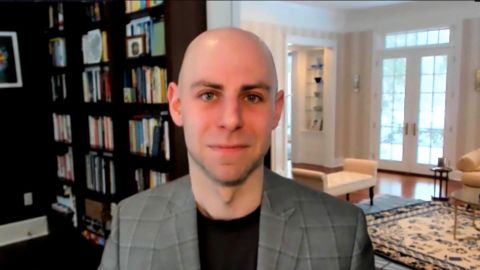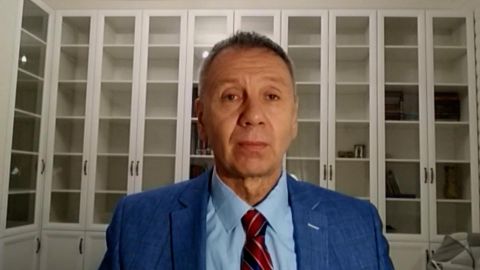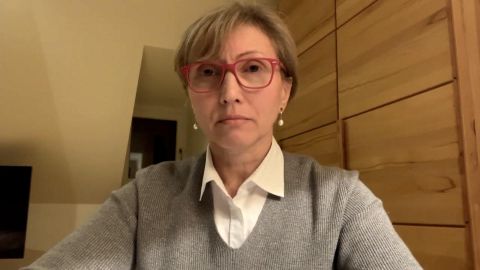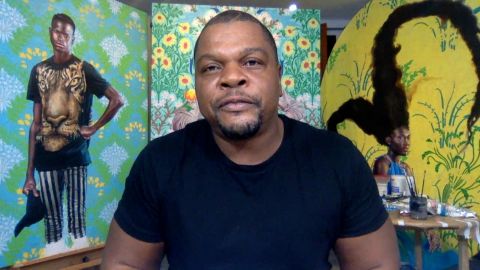Read Transcript EXPAND
CHRISTIANE AMANPOUR: Given that you’re in Senegal, which was part of the slave trade, fostered by the Dutch, it’s had its own reckoning. Are you able to sort of, I don’t know, compare and contrast what you’re seeing and living there, compared to what’s happening in the United States on this issue and the legacy of slavery and racism?
KEHINDE WILEY, ARTIST: Well, the blast zone of George Floyd was global. I think what it did was, it made people of all peripheral positions wake up and say that their lives matter as well. And I think it emboldened a conversation that allowed people to say, enough already. All manner of feet and knees on next need to stop. The George Floyd murder is something that we see from many different points of view. But I think, for the first time in history, the technology was there to make us all slow down. During the corona crisis, we were all sitting at home and having the time to really collectively be horrified and terrorized by the moment. And I think part of being here and being at an arm’s distance from America allows me to see it as that much more of a freak show, that much more of a nightmare that only needs to be seen in social media to be understood.
AMANPOUR: About that and about a so-called reckoning, you said to “The New York Times” recently — or in the summer — “I’m not impressed yet. I’m seeing a lot of self-aggrandizing and self-congratulations on the part of our white allies.” Fill that out a little bit. And what do you think? What do you think should happen? What would you like to see happen, like a truth and reconciliation event in the United States?
WILEY: Sure. So much of that opportunity that arose during the conversation surrounding not only George Floyd’s death, but so many young black and brown men and women throughout the United States who have been subject to state violence. What we had and continue to have is an opportunity to have and effect real change. What we are talking about educational reform, prison reform. What we are talking about is substantial reanalysis of the way that justice and policing is carried out in the United States. So often what we do is that we have these moments where we can all get around a meme, post it on social media and feel good about it and then the moment carries on. The moment should not carry on. The moment should not pass. The 24-hour news cycle should not have anything to do with the justice that should be served for any one of those bodies, any one of those lives, any one of those stories that we see sadly increasingly across America.
About This Episode EXPAND
Former Russian Member of Parliament Sergey Markov reacts to opposition leader Alexey Navalny’s jail sentence. Marina Litvinenko, widow of Russian dissident Alexander Livinenko, explains why Navalny’s arrest is very personal to her. Artist Kehinde Wiley discusses Black Lives Matter. Psychologist Adam Grant gives tips for bridging divides.
LEARN MORE



